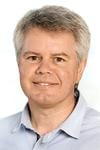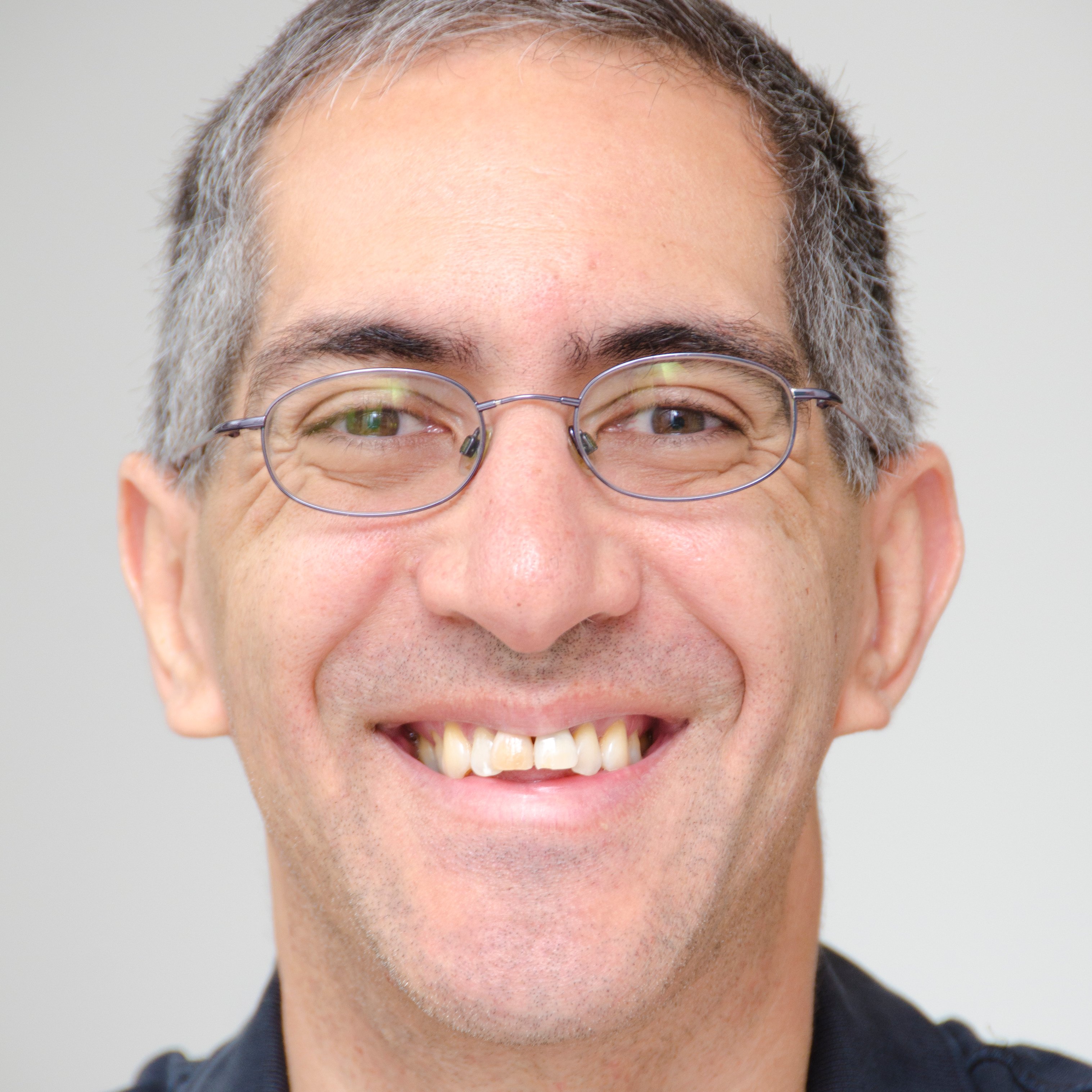- Sponsor:
- sigcse
Welcome to Seattle and SIGCSE 2017! Seattle is a vibrant, forward-thinking city that offers the perfect backdrop for SIGCSE. We are sure that together, the Symposium and Seattle's many attractions, such the Space Needle and Pike Place Market, will engage your mind and your sense of adventure.
The SIGCSE 2017 conference theme---Inspire, Innovate, Improve!---highlights our aim to inspire computing educators to innovate new teaching strategies, and to improve those strategies by engaging in the self-reflection and evaluation necessary to deliver the best possible learning outcomes for all. Our program showcases computer science education efforts in K-12, lower- and upper-level undergraduate courses, open-source software, outreach, and education research. A variety of sessions are sure to help you find what you are looking for, from Papers on experience reports, new curricula, and research studies, to Panels, Special Sessions, Workshops, Posters, Demonstrations, Birds of a Feather and the ACM SIGCSE Student Research Competition. We encourage you to visit our exciting Exhibits showcasing the latest in hardware, software tools, textbooks, educational programs, and educational research.
On Thursday, Jeannette Wing, Corporate Vice President for Microsoft Research, will deliver our opening plenary address. Jeannette will challenge us to embrace uncertainty in computing, which abounds in the real world where data drives discovery, as she helps us understand what implications this has for undergraduate computer science curricula.During our Saturday lunch, Mitchel Resnick, Professor of Learning Research at the MIT Media Lab, will discuss strategies for fulfilling Seymour Papert's dream of using programming as a new way for all children to explore, experiment, and express themselves. This year's recipient of the SIGCSE Award for Lifetime Service to the Computer Science Education Community, Mats Daniels (Associate Professor and director of undergraduate studies at the Department of Information Technology, Uppsala University, Sweden), will speak at the First Timers' Lunch on Friday and Gail Chapman (Director of Outreach for Exploring Computer Science), recipient of the SIGCSE Award for Outstanding Contributions to Computer Science Education, will give the Friday morning plenary address. We look forward to hearing the keynotes by these valued members of the SIGCSE community.
The SIGCSE Symposium strives to promote high-quality scholarship and community engagement around computer science education. 916 volunteers provided each Paper, Panel, Special Session, and Workshop with at least 5 reviews, and each Poster, Birds of a Feather, Demonstration, Lightning Talk, and ACM Student Research Competition submission with at least 3 reviews. These reviewers, along with 50 Associate Program Chairs (APC) and 8 Track Chairs, discussed the papers to come to consensus and resolve misunderstandings. The Program Chairs made final selections based on Track Chair and APC recommendations as well as importance to the SIGCSE community, novelty, and timeliness. The table below shows the number of submissions received and accepted in each submission category.
This year we recognize a new category of the top 25% of accepted papers as "Exemplary papers", highlighted by the Program Chairs for their accomplishment of high quality, novelty and broad appeal to reviewers. The Program Chairs also selected three best papers, that each received at least 2 of the highest rankings from reviewers. The Best CS Education Research Paper is "Computing with CORGIS: Diverse, Real-world Datasets for Introductory Computing" by Austin Bart, Ryan Whitcomb, Dennis Kafura, Cliff Shaffer and Eli Tilevich. The Best New Program Paper is "Infrastructure for Continuous Assessment of Retained Relevant Knowledge" by Kathleen Timmerman and Travis Doom. The Best Experience Report Paper is "Making Noise: Using Sound-Art to Explore Technological Fluency" by Erik Brunvand and Nina McCurdy.
A Pedagogical Analysis of Online Coding Tutorials
Online coding tutorials are increasingly popular among learners, but we still have little knowledge of their quality. To address this gap, we derived several dimensions of pedagogical effectiveness from the learning sciences and education literature and ...
Student Perspectives of Team-Based Learning in a CS Course: Summary of Qualitative Findings
Team-Based Learning (TBL) is an active learning pedagogy that involves a substantial amount of preparation work by students. While previous work shows that objective measures of student learning outcomes improved after TBL adoption in CS, little work ...
Evaluating an Alternative CS1 for Students with Prior Programming Experience
Before Fall 2013, our CS majors were required to take the same 4-credit introductory programming course as part of a two-semester CS1 designed to be welcoming to novices. As CS in K-12 has expanded, the diversity of incoming students' programming ...
In-Lab Programming Tests in a Data Structures Course in C for Non-Specialists
This paper reports on our experiences with in-lab programming tests (i.e., using a compiler and IDE) in a large undergraduate data structures course in C for non-specialists. By adding a suite of in-lab programming tests to our regular assessments (...
Variable Evaluation: an Exploration of Novice Programmers' Understanding and Common Misconceptions
For novice programmers one of the most problematic concepts is variable assignment and evaluation. Several questions emerge in the mind of the beginner, such as what does x = 7 + 4 or x = x + 1 really mean? For instance, many students initially think ...
MIPSUnit: A Unit Testing Framework for MIPS Assembly
We present MIPSUnit, a unit test framework for MIPS assembly. MIPSUnit's primary benefit is that it reduces the time needed to grade assembly language assignments. It also provides a time-efficient means for giving students additional testing experience;...
Recommendations for Designing CS Resource Sharing Sites for All Teachers
Many organizations have developed websites to support high school computer science (CS) teachers by providing them with collections of teaching resources. Yet rarely do these sites take into account the unique challenges of new CS teachers who often ...
Preparing STEM Teachers to offer New Mexico Computer Science for All
In this paper, we describe a new teacher professional development program, New Mexico Computer Science for All (NM-CSforAll), that prepares high school science, technology, engineering and math (STEM) teachers to serve as learning coaches / teaching ...
Teaching CS to CS Teachers: Addressing the Need for Advanced Content in K-12 Professional Development
Two-thirds of all computer science teachers in the United States do not have a degree in computer science. As demand for K-12 computer science education continues to grow, and as industry continues to lure computer science graduates away from careers in ...
Impact of Class Size on Student Evaluations for Traditional and Peer Instruction Classrooms
As student enrollments in computer science increase, there is a growing need for pedagogies that scale. Recent evidence has shown Peer Instruction (PI) to be an effective in-class pedagogy that reports high student satisfaction even with large classes. ...
Understanding High School Students' Reading, Remixing, and Writing Codeable Circuits for Electronic Textiles
In this paper, we examine students? learning about computing by designing, coding, and remixing electronic textiles with sensor inputs and light outputs. We conducted a workshop with 23 high school students ages 16-17 years who learned how to craft and ...
Generating Hints and Feedback for Hilbert-style Axiomatic Proofs
This paper describes an algorithm to generate Hilbert-style axiomatic proofs. Based on this algorithm we develop logax, a new interactive tutoring tool that provides hints and feedback to a student who stepwise constructs an axiomatic proof. We compare ...
Just the Numbers: An Investigation of Contextualization of Problems for Novice Programmers
Contextualization of problems is widely studied in mathematics education. In computer science it is taken for granted that authentic, contextualized programming assignments will increase student interest and therefore enhance performance in programming ...
Cited By
-
Fitriyah Y, Dahlan J and Wahyudin W (2024). Review and Trend Analysis of Computational Thinking Research in Mathematics Education (2013-2023), Jurnal Math Educator Nusantara: Wahana Publikasi Karya Tulis Ilmiah di Bidang Pendidikan Matematika, 10.29407/jmen.v10i2.22039, 10:2, (381-394)
 Chen H and Ward P The Value of Time Extensions in Identifying Students Abilities Proceedings of the 2023 Conference on Innovation and Technology in Computer Science Education V. 1, (512-518)
Chen H and Ward P The Value of Time Extensions in Identifying Students Abilities Proceedings of the 2023 Conference on Innovation and Technology in Computer Science Education V. 1, (512-518)-
Uys W and Chigona W (2020). Evaluating undergraduate students’ self-directed learning experiences during research-based learning Self-directed learning research and its impact on educational practice, 10.4102/aosis.2020.BK206.02, (27-66)
 Falkner K, Sentance S, Vivian R, Barksdale S, Busuttil L, Cole E, Liebe C, Maiorana F, McGill M and Quille K An International Study Piloting the MEasuring TeacheR Enacted Computing Curriculum (METRECC) Instrument Proceedings of the Working Group Reports on Innovation and Technology in Computer Science Education, (111-142)
Falkner K, Sentance S, Vivian R, Barksdale S, Busuttil L, Cole E, Liebe C, Maiorana F, McGill M and Quille K An International Study Piloting the MEasuring TeacheR Enacted Computing Curriculum (METRECC) Instrument Proceedings of the Working Group Reports on Innovation and Technology in Computer Science Education, (111-142) Bennedsen J and Caspersen M (2019). Failure rates in introductory programming, ACM Inroads, 10:2, (30-36), Online publication date: 25-Apr-2019.
Bennedsen J and Caspersen M (2019). Failure rates in introductory programming, ACM Inroads, 10:2, (30-36), Online publication date: 25-Apr-2019.-
Rodriguez S and Lehman K (2018). Developing the next generation of diverse computer scientists: the need for enhanced, intersectional computing identity theory, Computer Science Education, 10.1080/08993408.2018.1457899, 27:3-4, (229-247), Online publication date: 2-Oct-2017.
-
Maguire P, Maguire R and Kelly R (2018). Using automatic machine assessment to teach computer programming, Computer Science Education, 10.1080/08993408.2018.1435113, 27:3-4, (197-214), Online publication date: 2-Oct-2017.
Recommendations
Acceptance Rates
| Year | Submitted | Accepted | Rate |
|---|---|---|---|
| SIGCSE TS 2025 | 604 | 192 | 32% |
| SIGCSE '19 | 526 | 169 | 32% |
| SIGCSE '18 | 459 | 161 | 35% |
| SIGCSE '17 | 348 | 105 | 30% |
| SIGCSE '16 | 297 | 105 | 35% |
| SIGCSE '15 | 289 | 105 | 36% |
| SIGCSE '14 | 274 | 108 | 39% |
| SIGCSE '13 | 293 | 111 | 38% |
| SIGCSE '12 | 289 | 100 | 35% |
| SIGCSE '11 | 315 | 107 | 34% |
| SIGCSE '02 | 234 | 73 | 31% |
| SIGCSE '01 | 225 | 78 | 35% |
| SIGCSE '00 | 220 | 78 | 35% |
| SIGCSE '99 | 190 | 70 | 37% |
| SIGCSE '98 | 201 | 72 | 36% |
| SIGCSE '97 | 177 | 75 | 42% |
| SIGCSE '96 | 205 | 78 | 38% |
| Overall | 5,146 | 1,787 | 35% |






